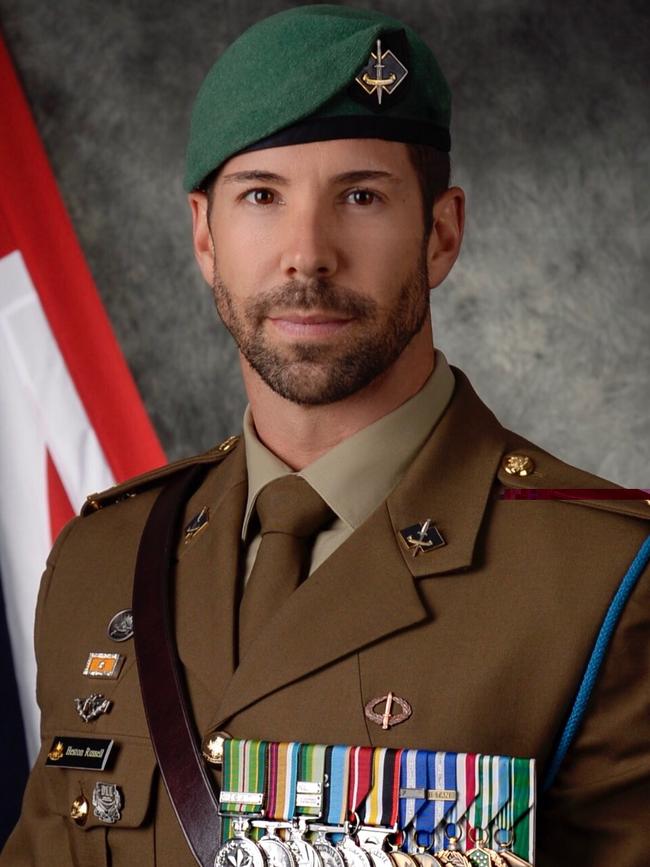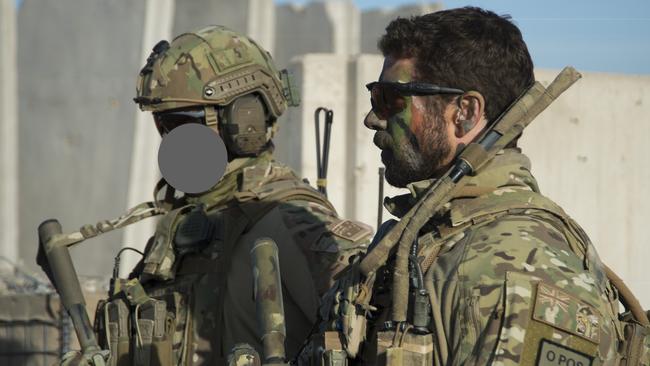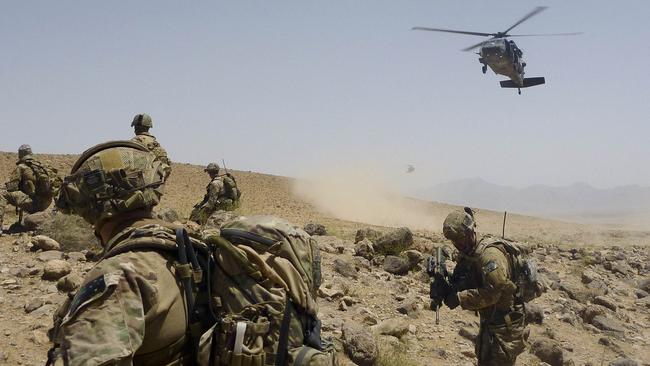Special Forces suicide battle while navigating veterans affairs system
As troops return from the Middle East, the true human cost of our decade at war is only just beginning to be felt at home. Here, Major Heston Russell tells his story and the continuing fight to keep comrades alive off the battlefield.
NSW
Don't miss out on the headlines from NSW. Followed categories will be added to My News.
- What you get as a subscriber to The Daily Telegraph
- Pete Evans' spruiked ‘tribal living’ dream canned
A former officer in Australia’s special forces has spoken of the mental toll inflicted by years of service, but says the real damage is caused by trying to navigate the torturous veterans’ affairs system.
Having served in East Timor, Iraq and Afghanistan, as well as a number of assignments he is not allowed to detail, the military blood runs deep in third generation soldier Heston Russell.
His father was deployed in the Iraq War while his grandfather served in Korea and Vietnam.
But the real war is now being waged on the home front.

In the past five years alone, the 34-year-old has lost more friends to suicide than during his four deployments to Afghanistan.
“As a leader in the army, I was charged with being responsible for my team. I prided myself on what we did and how we did it,” he said.
“The simple fact that I literally can’t protect my guys sitting at home on a sunny Sydney afternoon, yet I could bring them back from facing actual death overseas, is literally despairing. The current Defence transition process doesn’t understand what is actually needed to effectively prepare combat service men and women for life after the military.”
The elite soldier, who discharged from the military in January last year, said that more than 10 soldiers from his unit have killed themselves.
While the Australian Defence Force (ADF) has support structures in place, putting your hand up to access them can mean career suicide, Russell said. And making a claim with the Department of Veterans’ Affairs (DVA) can be equally difficult with long processes and a focus on liability as opposed to treatment.

Russell said troubled soldiers who turn to the government for help face an administrative process that “doesn’t understand modern veterans and devalues their service”.
“It is a long, drawn-out administrative process that makes veterans sound like victims in order just to get the offered basic support,” he said.
“It makes us feel like we’re doing a disservice leaving the military. It is a culture that encourages us to hide our injuries so as to not impact our employment and save it all up for when we leave.”
Since 2001, more than 400 veterans have taken their lives compared to 59 in combat across deployments to Afghanistan, Iraq, the Solomon Islands, Indonesia and Fiji in that same period.

In February, Prime Minister Scott Morrison announced the creation of a National Commissioner for Defence and Veteran Suicide Prevention to investigate the crisis gripping former servicemen and women. The appointment followed The Daily Telegraph’s Save Our Heroes campaign which called for a Royal Commission into the rising suicide toll of veterans.
Russell, who felt so despondent he recently planned to take his own life, said the campaign and the conversations it started were “crucial to bring change to the system”.
But he said “more must be done to better understand the issues being caused by the ignorance and negligence in the current transition and post service support systems”.
“The conversation I had with DVA is that they would do more help if they actually stopped what they were doing,” he said.
“You tell a soldier to dig a pit and that they have to shit and sleep in it and they are going to be cold and wet, we get it, it’s fine because our expectations are set. When you tell us there is a system in place to help us and then let us down every time, you actually lose the hope that you’ve given us and make it even worse.”
Some, who feel abandoned by the ADF and DVA, are feeling similarly ostracised by some of the older veteran organisations. And for Russell, unless “World War III breaks out”, he won’t be rejoining the army again.
But this is where Voice Of A Veteran steps in. Russell founded the organisation to give all veterans a forum, a voice and support.
“Since having my moment (suicidal thoughts), I’ve spoken with 12 of my former soldiers who were in service with me and the shocking part is that every single one has told me about how they had a similar experience,” he said.
“Just having that vulnerable conversation would actually made them feel less weird or less lonely or less different.
“ This is what I know I can offer, it is that image that people don’t usually associate with such vulnerability, but accepting that is actually empowering and it is now our responsibility to just have these conversations now more than ever.”
LIFELINE 131114
